 W
WAn agency of the European Union is a decentralised body of the European Union (EU), which is distinct from the institutions. Agencies are established to accomplish specific tasks. Each agency has its own legal personality. Some answer the need to develop scientific or technical know-how in certain fields, others bring together different interest groups to facilitate dialogue at European and international level.
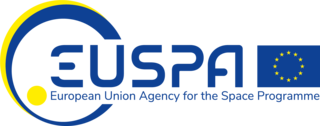 W
WThe European Union Agency for the Space Programme (EUSPA), builds on the legacy of the European GNSS Agency, with an amplified scope; EUSPA leverages the EU Space Programme components to create opportunities for the EU citizens and support the economy.
 W
WThe Body of European Regulators for Electronic Communications, based in Riga (Latvia), is the regulating agency of the telecommunication market in the European Union. It was created by the Telecoms Package which was passed in September 2009.
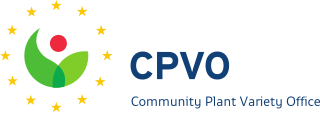 W
WThe Community Plant Variety Office (CPVO) is an agency of the European Union, located in Angers, France. It was established in 1994. Its task is to administer a system of plant variety rights, also known as plant breeders' rights, a form of intellectual property right relating to plants.
 W
WThe European (EU) Union Asset Recovery Offices (ARO) are national central contact points that facilitate EU-wide tracing of assets derived from crime.
 W
WThe European Union Agency for the Operational Management of Large-Scale IT Systems in the Area of Freedom, Security and Justice (eu-LISA) is an agency of the European Union (EU) that was founded in 2011 to ensure the uninterrupted operation of large-scale IT systems within the area of freedom, security and justice (AFSJ), that are instrumental in the implementation of the asylum, border management and migration policies of the EU. It began its operational activities in December 2012.
 W
WEurojust is an agency of the European Union (EU) dealing with judicial co-operation in criminal matters among agencies of the member states. It is seated in The Hague, Netherlands. Established in 2002, it was created to improve handling of serious cross-border and organised crime by stimulating investigative and prosecutorial co-ordination.
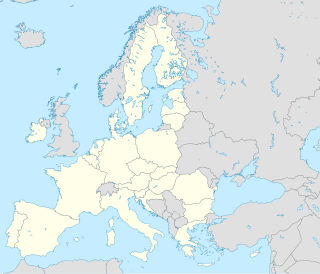 W
WThe European Agency for Safety and Health at Work (EU-OSHA) is a decentralised agency of the European Union with the task of collecting, analysing and disseminating relevant information that can serve the needs of people involved in safety and health at work. Set up in 1994 by Council Regulation (EC) No 2062/94 of 18 July 1994, EU-OSHA is based in Bilbao, Spain, where it has a staff of occupational safety and health, communication and administrative specialists. Dr Christa Sedlatschek is the current Director of EU-OSHA, following on from Dr Jukka Takala in September 2011.
 W
WThe European Banking Authority (EBA) is a regulatory agency of the European Union headquartered in Paris. Its activities include conducting stress tests on European banks to increase transparency in the European financial system and identifying weaknesses in banks' capital structures.
 W
WThe European Border and Coast Guard Agency, also known as Frontex, is an agency of the European Union headquartered in Warsaw, Poland, tasked with border control of the European Schengen Area, in coordination with the border and coast guards of Schengen Area member states.
 W
WThe European Centre for Disease Prevention and Control (ECDC) is an agency of the European Union (EU) whose mission is to strengthen Europe's defences against infectious diseases. It covers a wide spectrum of activities, such as: surveillance, epidemic intelligence, response, scientific advice, microbiology, preparedness, public health training, international relations, health communication, and the scientific journal Eurosurveillance.
 W
WThe European Centre for the Development of Vocational Training (Cedefop) is an agency of the European Union. Established in 1975, Cedefop is headquartered and located in Thessaloniki region, Greece, and has a Brussels office. Cedefop is the acronym of its French title, Centre Européen pour le Développement de la Formation Professionnelle (C.E.DE.FO.P.). Cedefop supports the development of European vocational education and training (VET) policies and contributes to their implementation.
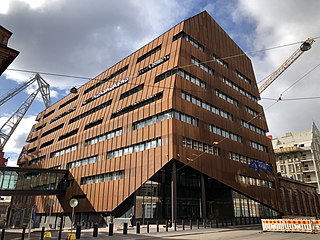 W
WThe European Chemicals Agency is an agency of the European Union which manages the technical and administrative aspects of the implementation of the European Union regulation called Registration, Evaluation, Authorisation and Restriction of Chemicals (REACH). ECHA is the driving force among regulatory authorities in implementing the EU's chemicals legislation. ECHA has to ascertain that companies comply with the legislation, advances the safe use of chemicals, provides information on chemicals and addresses chemicals of concern. It is located in Helsinki, Finland. ECHA is an independent and mature regulatory agency established by REACH. It is not a subsidiary entity of the European Commission.
 W
WThe European Environment Agency (EEA) is the agency of the European Union (EU) which provides independent information on the environment.
 W
WThe European Food Safety Authority (EFSA) is the agency of the European Union (EU) that provides independent scientific advice and communicates on existing and emerging risks associated with the food chain. EFSA was established in February 2002, is based in Parma, Italy, and for 2021 it has a budget of €118.6 million, and a total staff of 542.
 W
WThe European Foundation for the Improvement of Living and Working Conditions (Eurofound) is an agency of the European Union which focuses on managing research, gathering information, and communicating its findings.
 W
WThe European Union Agency for the Space Programme is the agency of the European Union (EU) that aims to ensure that essential public interests are properly defended and represented in connection with satellite navigation programmes of the union: Galileo and European Geostationary Navigation Overlay Service (EGNOS). The aim of the former is to provide a modern European alternative to the established American system, GPS.
 W
WThe European Institute for Gender Equality (EIGE) is a European Union-initiated body dedicated exclusively to gender equality. In accordance to Regulation (EC) the institute was founded on 20 December 2006. The employment was first started in 2007 at the European coordinating body in Vilnius. Since the beginning, the institution has difficulties to balance the democratic deficit, in the context of the issue of equality between women and men. From the very beginning equality is one of the principles of the EU. Nevertheless, there is an existing gender gap in the levels of participation, payment and benefits of women in comparison to men in the EU.
 W
WThe European Insurance and Occupational Pensions Authority (EIOPA) is a European Union financial regulatory institution that replaced the Committee of European Insurance and Occupational Pensions Supervisors (CEIOPS). It is established under EU Regulation 1094/2010.
 W
WThe European Maritime Safety Agency (EMSA) is a European Union agency charged with reducing the risk of maritime accidents, marine pollution from ships and the loss of human lives at sea by helping to enforce the pertinent EU legislation. It is headquartered in Lisbon.
 W
WThe European Medicines Agency (EMA) is an agency of the European Union (EU) in charge of the evaluation and supervision of medicinal products. Prior to 2004, it was known as the European Agency for the Evaluation of Medicinal Products or European Medicines Evaluation Agency (EMEA).
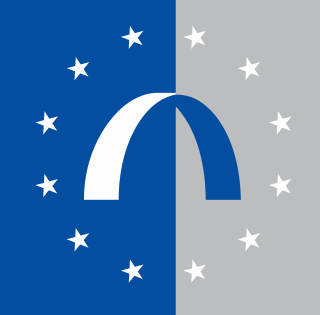 W
WThe European Monitoring Centre for Drugs and Drug Addiction (EMCDDA) is an agency of the European Union located in Lisbon, Portugal. Established in 1993, the EMCDDA strives to be the "reference point" on drug usage for the European Union's member states, and to deliver "factual, objective, reliable and comparable information" about drug usage, drug addiction and related health complications, including hepatitis, HIV/AIDS and tuberculosis.
 W
WThe European Securities and Markets Authority (ESMA) is an independent European Union Authority located in Paris.
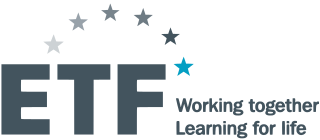 W
WThe European Training Foundation (ETF) is an agency of the European Union. Established in 1990, operational since 1994, the European Training Foundation is located in Turin, Italy.
 W
WCEPOL, or the European Union Agency for Law Enforcement Training, is an agency of the European Union dedicated to training law enforcement officials. The institution was founded in 2000 and adopted its current legal mandate on 1 July 2016. It is based in Budapest, Hungary.
 W
WThe European Union Agency for Railways (ERA) is the agency of the European Union (EU) that sets mandatory requirements for European railways and manufacturers in the form of Technical Specifications for Interoperability, which apply to the Trans-European Rail system. The ERA publishes a document summarising the status of the TSIs. The ERA sets common safety targets, common safety methods and common safety indicators, following Directive 2004/49/EC and amendments. The ERA also hosts a number of databases, among which a register of remaining, applicable national rules.
 W
WThe European Union Agency for the Cooperation of Energy Regulators (ACER) is an Agency of the European Union by the Third Energy Package in 2009. It was established in 2010 and has its seat in Ljubljana, Slovenia.
 W
WThe European Union Aviation Safety Agency (EASA) is an agency of the European Union (EU) with responsibility for civil aviation safety. It carries out certification, regulation and standardisation and also performs investigation and monitoring. It collects and analyses safety data, drafts and advises on safety legislation and co-ordinates with similar organisations in other parts of the world.
 W
WThe European Union Intellectual Property Office, founded in 1994, is the European Union Agency responsible for the registration of the European Union trade mark (EUTM) and the registered Community design (RCD), two unitary intellectual property rights valid across the 27 Member States of the EU. Every year, it registers an average of 135 000 EU trade marks and close to 100 000 designs. The EUIPO is also responsible for maintaining an Orphan Works Registry. Registered works have certain permitted acts under the Orphan Works Directive.
 W
WThe European Union Agency for Law Enforcement Cooperation, better known under the name Europol, formerly the European Police Office and Europol Drugs Unit, is the law enforcement agency of the European Union (EU) formed in 1998 to handle criminal intelligence and combat serious international organised crime and terrorism through cooperation between competent authorities of EU member states. The Agency has no executive powers, and its officials are not entitled to arrest suspects or act without prior approval from competent authorities in the member states. Seated in The Hague, it comprised 1,065 staff in 2016.
 W
WThe European Fisheries Control Agency (EFCA) is the agency of the European Union (EU) that co-ordinates the national operational activities in the area of fisheries, and assists the member states in their application of the Common Fisheries Policy (CFP). The agency is based in Vigo, Spain.
 W
WThe European Union Agency for Fundamental Rights, usually known in English as the Fundamental Rights Agency (FRA), is a Vienna-based agency of the European Union inaugurated on 1 March 2007. It was established by Council Regulation (EC) No 168/2007 of 15 February 2007.
 W
WThe Gender Equality Index is a measurement tool that shows how far the EU and its Member States are from achieving a gender-equal society. It was developed by the European Institute for Gender Equality (EIGE).
 W
WThe European Labour Authority (ELA) is an agency of the European Union tasked with coordinating and supporting the enforcement of EU law on labour mobility. Its activities started on 17 October 2019 and the agency is expected to reach a yearly budget of €50 million and 140 staff by 2024. Bratislava, Slovakia is the agency's host city.
 W
WThe Trans-European Transport Network Executive Agency was an executive agency established by the European Commission in October 2006 in order to realise the technical and financial implementation of the TEN-T programme. It ceased its activities on 31 December 2013 and was superseded by the Innovation and Networks Executive Agency (INEA).
 W
WThe Translation Centre for the Bodies of the European Union (CdT) is an EU agency based in Luxembourg City. Its primary role is to cater for the diverse multilingual communication needs of the EU agencies and other EU bodies. In addition, it may be called upon by the EU institutions to absorb any surplus work they may have.